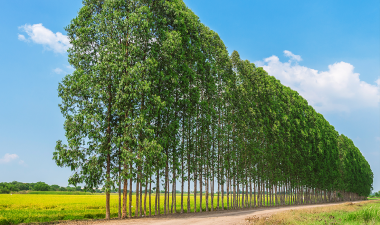Overview of the Bamboo Plantation Milestone
The bamboo plantation initiative in India has achieved a major milestone, transforming vast areas of degraded land into thriving green spaces. This project has become a model of sustainable agriculture, delivering impressive economic returns while promoting environmental conservation. With bamboo being one of the fastest-growing plants on earth, the plantation has harnessed its potential to meet the high global demand for sustainable materials, contributing to India’s economy and environmental health.
The plantation's success is rooted in its innovative approach, combining traditional knowledge with modern techniques to maximize yield and quality.
Returned Profit: A High-Growth Investment
The bamboo plantation has demonstrated strong financial performance, achieving a profit margin of 20-30% over the last year. This remarkable growth is driven by increasing demand for bamboo products, such as furniture, paper, textiles, and bioenergy. Investors have enjoyed significant returns, proving the profitability and scalability of bamboo cultivation in India.
“With a returned profit margin of 20-30%, the bamboo plantation highlights the untapped potential of sustainable agriculture in generating wealth and promoting green growth.”[1]
Investment Statistics and Performance Highlights
The bamboo plantation has attracted significant investment from both local entrepreneurs and international green investors. The initial funding was utilized to establish 200 hectares of bamboo forests, with each hectare yielding up to 25 tons of bamboo annually. Over the past year, the plantation's revenue has increased by 40%, fueled by rising demand for eco-friendly products.
The plantation has reinvested 30% of its profits to expand the cultivation area, improve processing facilities, and explore new product lines, ensuring continued growth and diversification of revenue streams.
Driving Environmental and Social Impact
Beyond its economic success, the bamboo plantation has made substantial contributions to environmental sustainability. Bamboo is known for its ability to sequester carbon, restore degraded lands, and improve soil health. The plantation’s practices promote biodiversity, prevent soil erosion, and support water conservation, reinforcing India’s commitment to sustainable development.
The project also provides livelihoods to local communities, creating jobs in planting, harvesting, and processing bamboo, and fostering inclusive growth in rural areas.
Future Expansion and Market Opportunities
Building on its current achievements, the bamboo plantation plans to expand its operations by 50% over the next two years. This includes cultivating new bamboo varieties suited to different climates, enhancing processing capabilities, and developing value-added products such as bamboo composites and bio-based packaging.
With global demand for sustainable materials on the rise, the plantation is well-positioned to capture new markets and drive further growth, benefiting both investors and the environment.
Be Part of the Bamboo Revolution
The success of the bamboo plantation in India is a testament to the power of sustainable agriculture to create value while safeguarding our planet. As the project scales up, there are numerous opportunities for new investors, partners, and stakeholders to join this green revolution.
Invest in the future by supporting the expansion of the bamboo plantation. Together, we can build a more sustainable, prosperous world, one bamboo grove at a time.






